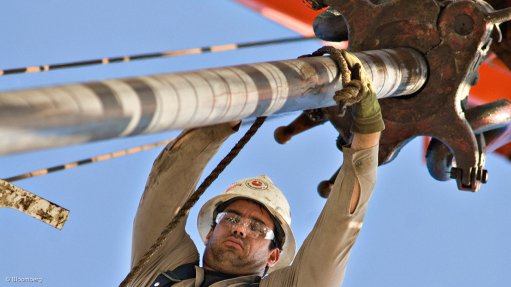
Photo by: Bloomberg
Despite various challenges related to the extraction of shale oil and gas, as countries grow accustomed to the idea, the use of shale as a form of energy will be more widely pursued, international oil and gas market analyst Michael Lynch said on Tuesday.
Speaking at the 2014 World Energy Security Forum, in Sandton, he pointed out that the problem with public and political opinion was often that the general population did not understand the science behind an industry and, therefore, believed anecdotes on the detrimental effects of, for example, fracking that might not be accurate.
However, Lynch pointed out that people were “getting used to the idea” of shale gas.
“It is slow progress but we will see shale gas [production] spreading to countries where there is [currently] opposition,” he said.
Lynch added that other aspects challenging the production of shale gas included the high decline rate of shale wells, high production costs and insufficient equipment and personnel to facilitate large-scale production.
However, he noted that, while it was true that shale gas wells had a high decline rate, so did conventional oil and gas and yet the exploitation of these commodities was seen as a viable industry.
Further, in terms of cost Lynch explained that only the early exploration costs were often considered without taking into account that costs would decline as drilling became more advanced.
He added that while it would be cheaper to establish a shale gas industry in a country where the necessary infrastructure existed and people were skilled, it was not an insurmountable problem to do this in a country where the pipelines had to be built and the people required training.
Commenting on the costs involved for countries that would have to establish new shale gas industries, Lynch said “while producing shale [gas] will not be cheap, it will be cheaper than imports”.
Lynch also highlighted that shale gas was often found near consumers, therefore, reducing transport costs, which could, to an extent, offset the higher production cost.
In this regard, he said where a new gas field existed without the necessary infrastructure it would be better for producers to focus on supplying the local market than targeting exports, thus, reducing exposure to global markets and transport costs.
“Where you have gas, you have to think of how [it can be used] locally to create energy and attract investment,” Lynch believed.